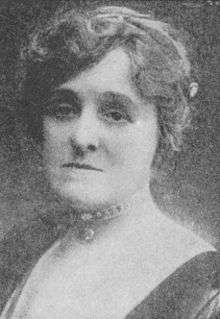Ironic precision
Ironic precision is a literary style utilized by authors such as Gustave Flaubert[1] and poet Wisława Szymborska,[2][3][4] recipient of the Nobel Prize in Literature.
It is a combination of the literary devices of irony and precisionism, an artistic movement prominent in the early to mid-20th century.
History

One of the earliest references to ironic precision can be found in the 1913 novel by Edith Wharton, The Custom of the Country.[5]
The most prolific use of ironic precision was highlighted in the Nobel citation for Wisława Szymborska in 1996. She was given the award "for poetry that with ironic precision allows the historical and biological context to come to light in fragments of human reality".[2][3][4]
Jonathan Swift features the use of ironic precision in his essay A Modest Proposal. As discussed in the 2012 book Encyclopedia of the Essay, the style is used when his character, a Tory, suggests that the English aristocracy encourage the Irish to sell their children.[6]
In 1980, Vladimir Nabokov in his lectures described the style of Gustave Flaubert having ironic precision:[1]
- The greatest literary influence upon Kafka was Flaubert's. Flaubert who loathed pretty-pretty prose would have applauded Kafka's attitude towards his tool. Kafka liked to draw his terms from the language of law and science, giving them a kind of ironic precision, with no intrusion of the author's private sentiments; this was exactly Flaubert's method through which he achieved a singular poetic effect. The legacy of his work habits can best be described, therefore, as paving the way towards a slower and more introspective manner of writing.
Gisella Perl also used ironic precision in recalling her experiences at the Auschwitz concentration camp.[7]
References
- 1 2 Nabokov (1980) Lectures on literature, Volume 1, p.256
- 1 2 "The Nobel Prize in Literature 1996". Nobelprize. 7 October 2010. Retrieved 30 October 2012.
- 1 2 "I Don't Know: The Nobel lecture". The New Republic. 30 December 1996. Retrieved 30 October 2012.
- 1 2 "Celebrating a Poet's Virtues". The Warsaw Voice. Retrieved 31 October 2012.
- ↑ Wharton, Edith. The Custom of the Country, p.438
- ↑ Chevalier, Tracy. Encyclopedia of the Essay, p.1567
- ↑ Platt, Len. Modernism and Race, p.256